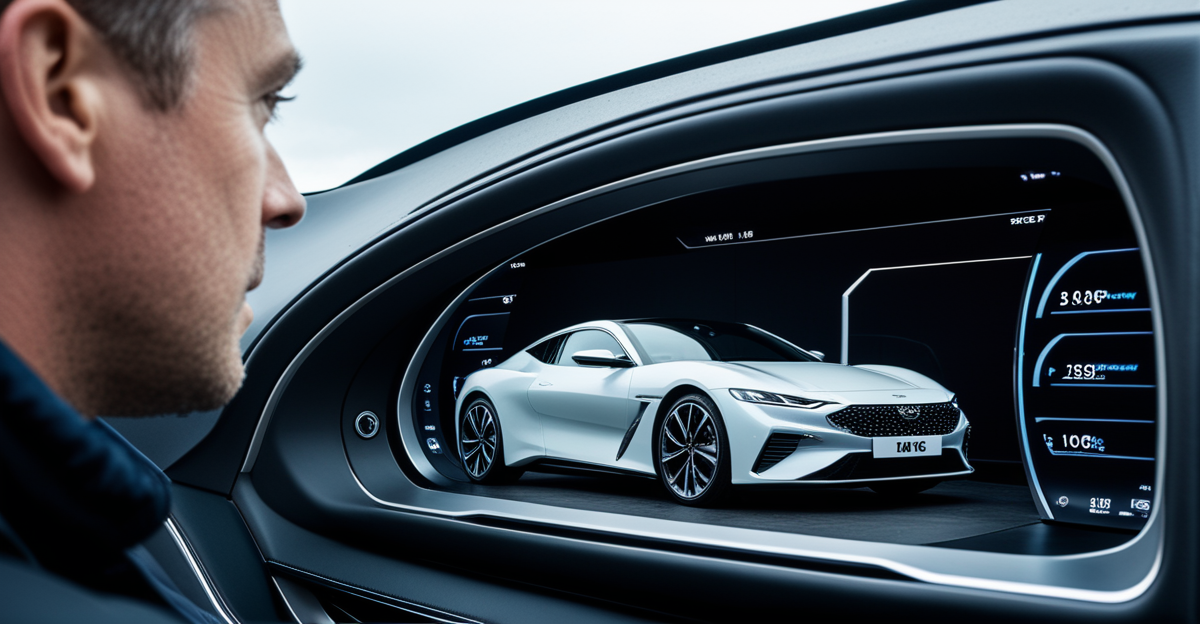Key Innovations Transforming the UK’s Automotive Industry
The UK automotive industry is undergoing a profound industry transformation, driven by cutting-edge UK automotive innovation in areas such as electric vehicles (EVs), autonomous systems, and connected mobility solutions. These emerging technologies are not only reshaping the way vehicles are designed and used but also enhancing the UK’s position in the global market.
Electric vehicles represent one of the most significant advancements, with automakers focusing on improving performance, reducing emissions, and increasing adoption through innovation in battery technology and charging infrastructure. Additionally, autonomous vehicles and connected cars are gaining momentum through pioneering UK pilot projects that showcase the future of mobility UK, demonstrating improvements in safety and efficiency.
Also to see : What Is the Future of Electric Vehicles in the UK Automotive Industry?
The significance of these innovations goes beyond technological progress; they are critical for ensuring the UK’s automotive sector remains competitive and sustainable amidst changing environmental standards and consumer expectations. This industry transformation is propelled by government incentives, research collaborations, and increasing consumer demand for smarter, greener transportation options.
Together, these developments mark a shift towards a more integrated, intelligent, and environmentally responsible automotive landscape in the UK.
Topic to read : What Are the Future Trends for Autonomous Cars in the UK?
Breakthroughs in Electric Vehicles and Battery Technologies
The electric vehicles UK market is rapidly expanding, marked by increased production and adoption driven by both consumer interest and environmental imperatives. UK automakers are at the forefront, investing heavily in advanced manufacturing techniques that support higher output of EV models while maintaining quality standards. This shift reflects broader EV trends emphasizing performance, affordability, and accessibility.
Central to this progress is battery innovation, which focuses on improving energy density, charging speed, and lifecycle durability. Solid-state batteries and enhanced lithium-ion designs are among the leading developments that promise to extend driving range and reduce charging times significantly. Simultaneously, the charging infrastructure across the UK is evolving, with fast chargers becoming more widespread to mitigate range anxiety and support long-distance travel.
Government initiatives play a crucial role in this transition. Through subsidies, grants, and regulations, the UK government actively fosters the adoption of cleaner vehicles and the installation of necessary charging networks. These efforts create a supportive environment for both manufacturers and consumers, accelerating the move towards a predominantly electric fleet. By combining manufacturing innovation, battery breakthroughs, and supportive policies, the UK is positioning itself as a key player in the future of sustainable transportation.
Autonomous and Connected Vehicle Developments
The landscape of autonomous vehicles in the UK is rapidly advancing, supported by numerous pioneering pilot projects that demonstrate the progress of self-driving UK initiatives. These projects test various levels of vehicle autonomy, from driver assistance to fully automated driving, within controlled urban and suburban environments. The emphasis on real-world testing allows developers to refine algorithms for navigation, obstacle detection, and decision-making.
Simultaneously, connected cars are becoming an integral part of future mobility UK, leveraging vehicle-to-vehicle (V2V) and vehicle-to-infrastructure (V2I) communication to enhance road safety and traffic management. These connectivity features enable cars to exchange information about speed, location, and road conditions, which can reduce accidents and improve journey efficiency. For example, connected car technologies facilitate smarter traffic flow by syncing with traffic signals and alerting drivers about hazards ahead.
The impact of these emerging technologies extends beyond convenience. Autonomous and connected vehicles are poised to transform logistics by optimizing fleet operations and lowering costs through driverless freight transport. Moreover, they improve user experience by offering seamless integration with digital services such as ride-sharing and personalized navigation. Overall, this sector is critical to the UK’s industry transformation, marrying innovation with safety and sustainability goals.
Sustainable Manufacturing and Green Practices
Advancing automotive sustainability UK is crucial to the industry’s long-term viability. Leading manufacturers are adopting green manufacturing techniques that reduce environmental impact throughout production. These include using renewable energy sources, minimizing water consumption, and integrating low-emission materials to cut the carbon footprint of vehicle assembly.
Circular economy approaches are gaining traction within the UK automotive sector. Many companies prioritize recycling and repurposing materials such as metals, plastics, and batteries. This not only reduces waste but also lessens dependence on raw resource extraction. Innovations in recycling technologies enable effective recovery of valuable components, contributing to both economic efficiency and environmental stewardship.
Noteworthy case studies highlight UK manufacturers that excel in sustainability. For instance, some have implemented closed-loop systems where waste materials are continuously reused. Others focus on biodegradable components or modular designs that facilitate easier repair and recycling. Together, these efforts represent a tangible industry transformation toward a more responsible and resilient automotive future in the UK.
Digitalization and Industry 4.0 Influences
Digitalization is driving a profound automotive digital transformation across the UK automotive sector. Integration of advanced technologies such as automation, robotics, and artificial intelligence (AI) within production lines is enabling the emergence of smart factories. These factories utilize interconnected systems to optimize manufacturing processes, improving efficiency, precision, and flexibility.
A pivotal Industry 4.0 UK innovation is the use of digital twins. These virtual replicas of physical assets allow manufacturers to simulate, monitor, and optimize processes in real time. By analyzing data from sensors embedded in vehicles and machinery, digital twins help reduce downtime and anticipate maintenance needs, enhancing overall productivity.
Such emerging technologies also impact the workforce and supply chain management. Automation relieves workers from repetitive tasks, allowing them to focus on higher-skilled roles, while AI-driven analytics streamline inventory and logistics operations. Collectively, these advancements support industry transformation by fostering agility and responsiveness in the competitive UK automotive market.
Policy, Investment, and Industry Collaboration
The UK automotive policy framework plays a pivotal role in driving the sector’s industry transformation by aligning innovation with broader economic and environmental goals. Central to this strategy are targeted government incentives such as grants, tax breaks, and research funding, which directly support the development of cutting-edge technologies in electric vehicles, autonomous systems, and digital solutions. These incentives lower financial barriers for manufacturers and startups, accelerating the adoption of UK automotive innovation across the industry.
Crucially, public-private partnerships underpin much of the progress seen in the UK automotive landscape. Collaborations between original equipment manufacturers (OEMs), technology startups, and academic institutions facilitate the pooling of expertise, resources, and infrastructure. For instance, joint research initiatives leverage university capabilities in AI and battery technology while enabling industry players to pilot emerging solutions at scale. These partnerships not only foster innovation but also enhance the UK’s competitive position in the global market.
Post-Brexit trade dynamics have introduced new complexities for the automotive supply chain, prompting the government and industry stakeholders to adapt through flexible policies and bilateral agreements. These efforts ensure continued access to critical components and markets, safeguarding investment incentives and collaborative ventures. Overall, a coordinated policy environment combined with robust investment and collaboration networks is essential to the UK’s sustained leadership in automotive innovation and the successful industry transformation underway.
Case Studies and Future Outlook
Examining notable UK automotive case studies reveals how innovation trends are shaping the future of mobility UK. One prime example involves manufacturers integrating advanced battery innovation into mass-produced electric vehicles, significantly extending driving range and reducing charging times. These practical implementations demonstrate the real-world impact of UK automotive innovation on consumer experience and environmental sustainability.
Another key case highlights partnerships between OEMs and technology startups that have successfully piloted autonomous vehicle fleets on urban routes. These projects exemplify how industry transformation in the UK is driven by collaboration, combining expertise to address technical and regulatory challenges. Furthermore, connected mobility solutions developed through these initiatives improve traffic flow and safety, aligning with broader smart city ambitions.
Looking ahead, experts anticipate continued rapid advancement in artificial intelligence and battery technologies, alongside expanding infrastructure investments. However, the sector faces challenges such as supply chain disruptions and evolving policy landscapes. Addressing these will require sustained public-private cooperation to ensure the UK remains at the forefront of emerging technologies in the automotive industry.





